Andrew Alton, Drew Hesker, Andy Wold – Presiding Fellows
Our trip is officially in the 4th quarter. We have two scripted days, a free day, and a travel day remaining. Early start today as we leave the Golan Heights and prepare for a new hotel tonight. We have a two-hour drive to our first visit this morning. Andy, Andrew, and Drew are fellows today…somebody is a comedian.

We arrived at Kibbutz Givat Brenner for a presentation with Dr. Gil Shalev – CEO of Equinom. Equinom is a seed company focused on food seed and not seed for biofuels. They look to enhance seeds nutritional value and flavor for human consumption. All seeds are non-GMO and no gene editing. Equinom works with customers at both ends of the market…farmers and food/ingredient companies. The business is located in Israel, but all the growing and farm partnerships are with operators in North America and across the world. All varieties are proprietary, which include soybean, pea, chickpea, sesame, faba, etc.
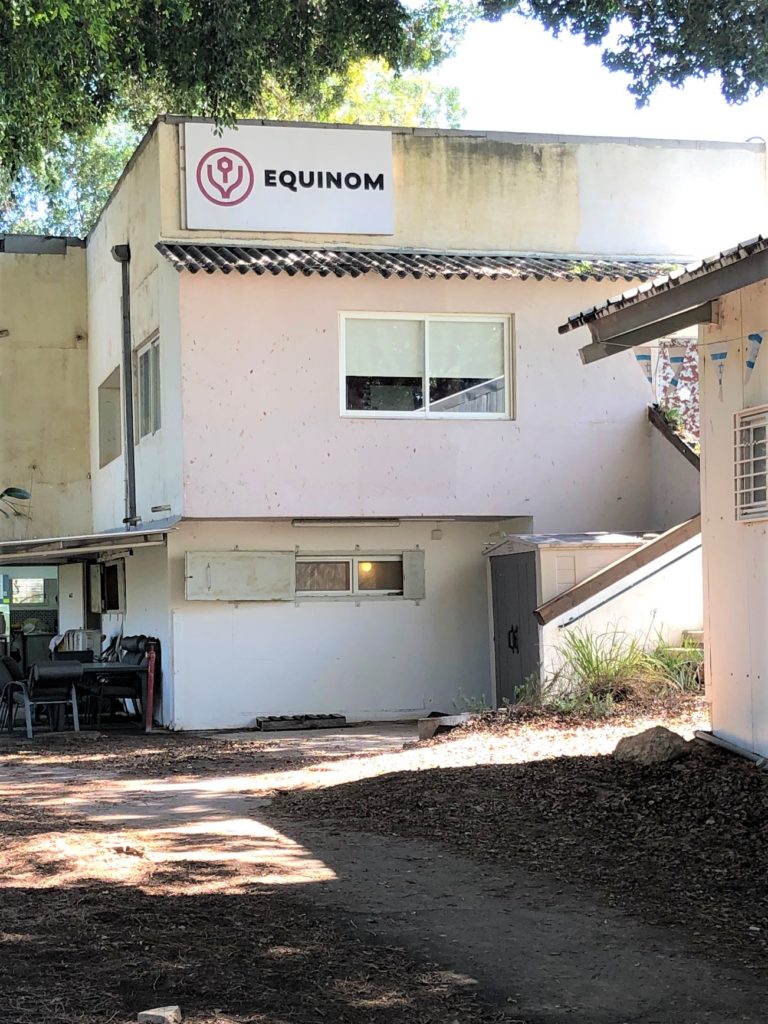
Equinom uses metadata on genomic info and traits along with a germplasm bank of exotic varieties crossed with elite germplasm. Then, they use a computational breeding platform with a proprietary algorithm to provide optimization and selection of seed varieties to breed and ultimately create their smarter seeds. Food engineers work to build various products that can meet demands for tastes, protein content, color, etc.
Equinom is working closely with US local grain handlers (Scoular, Clarkson). The well-known grain handlers then identify operators to pair with Equinom. The grain handler sells the specialty seed to the producer, who then has specific contracts with the same grain handler to sell the grain. The producer will receive a premium of $1-2/bushel. Equinom receives royalties from providing seed. US food growing market for the seed that is non-GMO is 2-3 million acres. Sees potential for growth in the US to grow specialty grown, especially during tight margin periods.
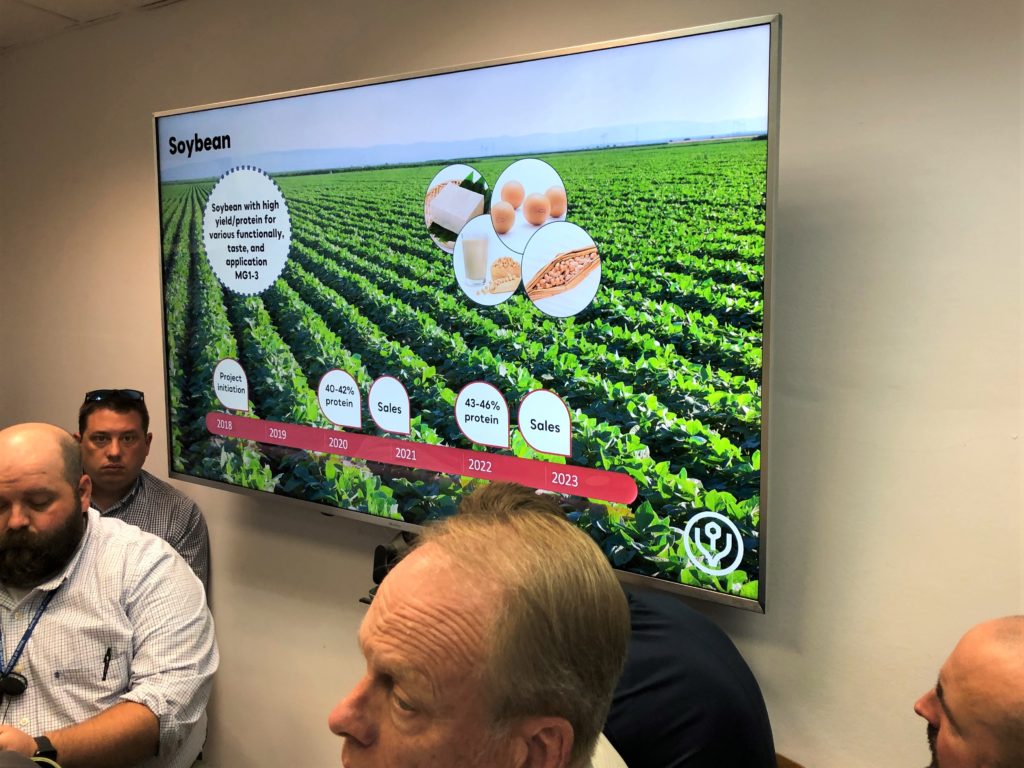
After the presentation with Equinom, we received a tour of the Kibbutz Givat Brenner with David Zaks.

The Kibbutz began in the 1920s but was established on this site in the 1940s. The Kibbutz was established with immigrants from the Baltic region…Lithuania, Latvia, and Poland plus a group from Italy. The Kibbutz began with 30 people. They were socialist immigrants coming to Israel. They began to learn Hebrew and assimilate into the Jewish faith. At its biggest, the Kibbutz had 900 members and around 1600-1700 people living within it. Today, there are 500 members, which doesn’t include children.
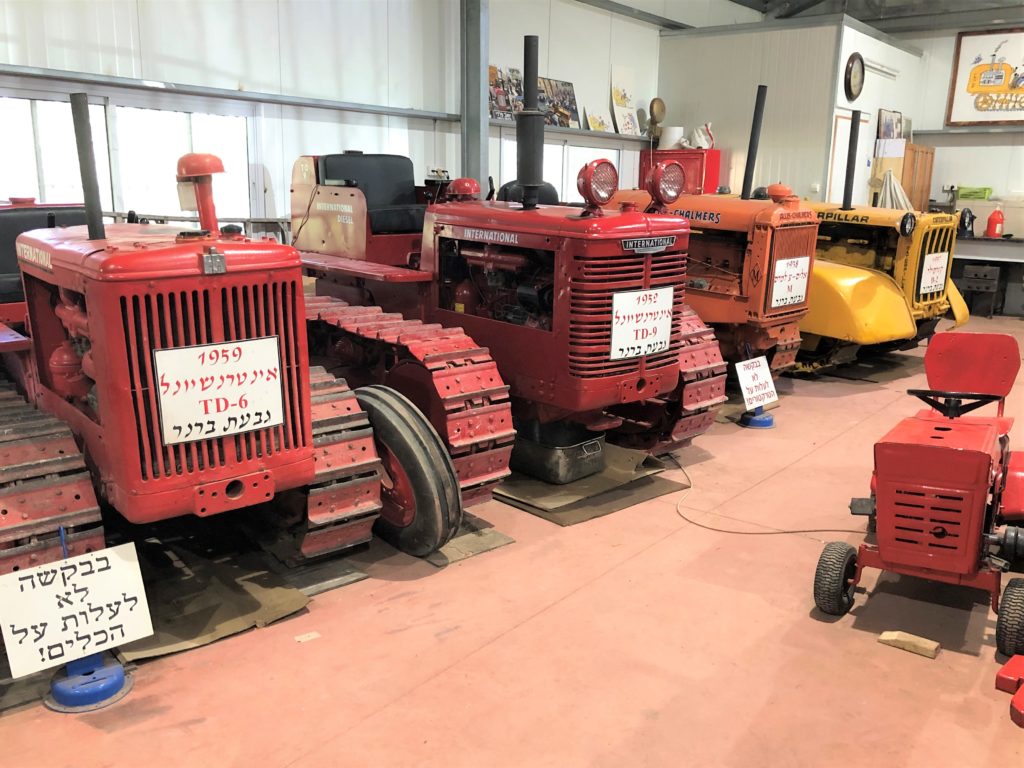

Our next stop was in Jaffa at the Peres Center for Peace and Innovation. This is the home of the Israeli Innovation Center. It is the largest of its kind in Israel.
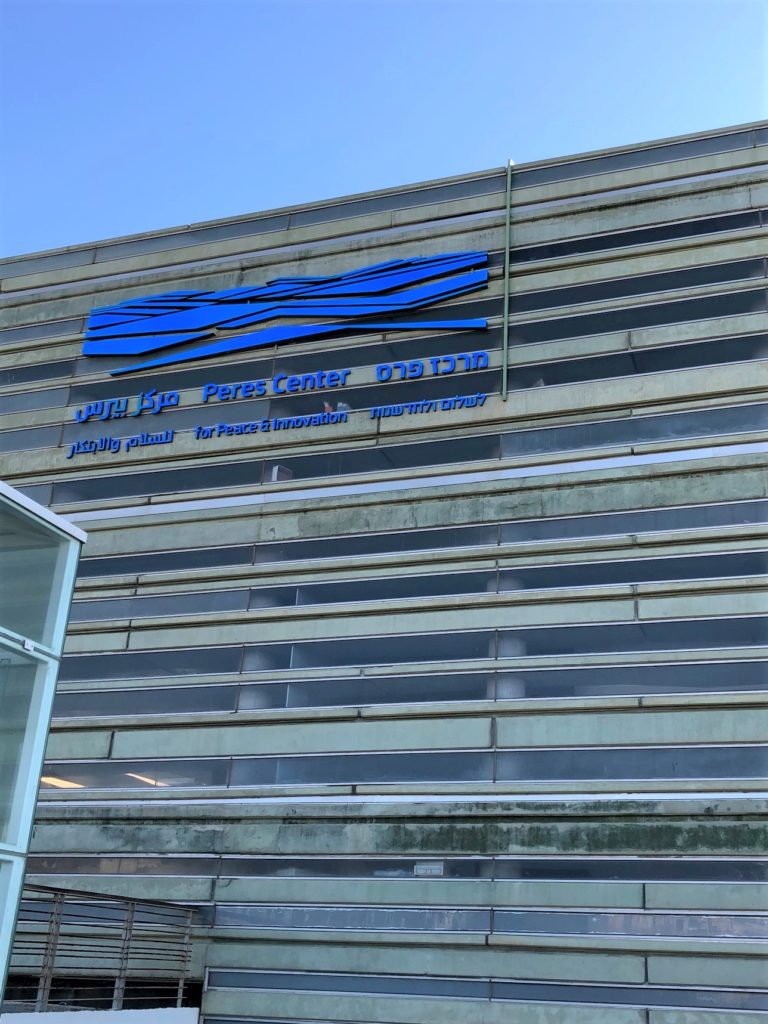
Shimon Peres was a founding father of the center and has held many governmental positions, including prime minister (twice) and president. Peres also signed the Oslo Accords in 1993 for peace with Palestine. These achievements led to him winning the Nobel Peace Prize. With his winnings (1/3 of $1mln), he began the Peres Center for Peace. His life’s work was to make the world a better place.

The building is made predominately of concrete and glass—the two play off each other…yin and yang. Peace is hard to achieve, and you often have to overcome rigid beliefs thoughts. However, if you look inwards and reflect and push, you can break through and hopefully arrive at peace. Also, both are made of sand…thus have a commonality, just like people.
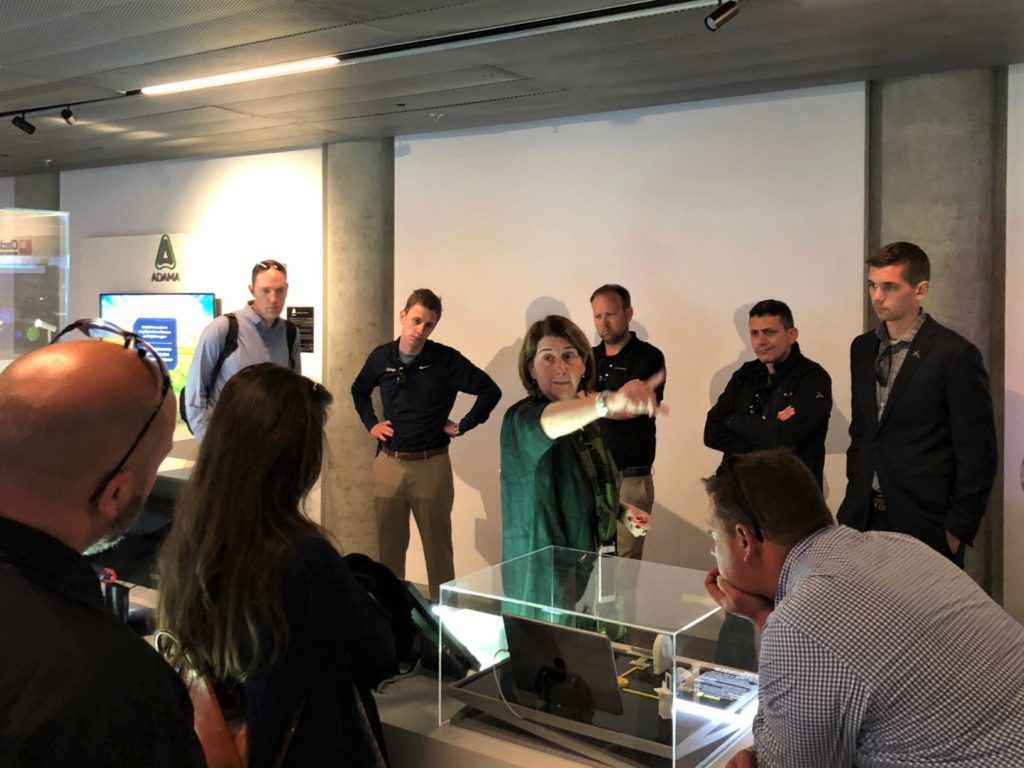
Today, there are roughly 6400 startups in Israel. Here are 43 of the greatest in medicine, agriculture, computer technology, and aerospace. Some of the notable agricultural innovations are centered on turning food waste into fuels, technology to check water purity, and grasshopper production to provide protein to the world. An Israeli company has already printed the first human heart. They believe it will be used within ten years. We all got to try the grasshoppers. I think we will stick with cheeseburgers.


The group especially had fun in the virtual reality simulator.

The last stop for sessions today is at the Connect Modi’in Technology Park. Here we met with Eylon Sorek – CEO of Skyx Solutions. Skyx is a chemical application company that utilizes drones armed with artificial intelligence so that pilots aren’t needed. The company’s global reach is made evident by a video from an onion farm in California last week.
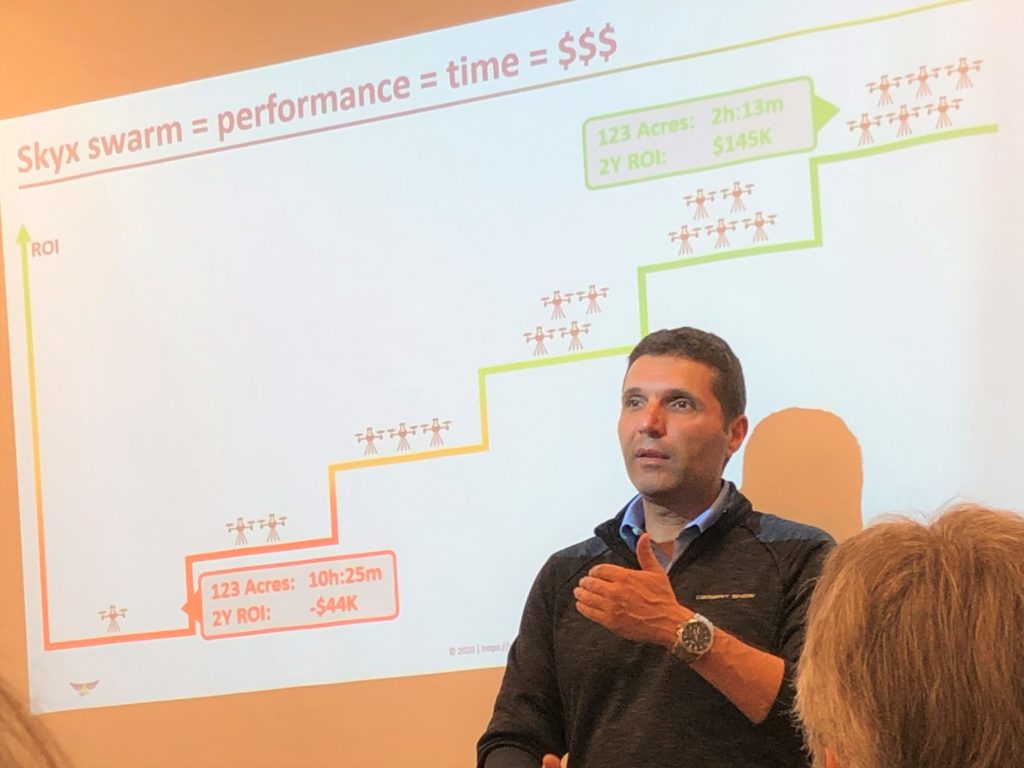
The drones have the technology to scout healthy “dense” zones where they don’t want to apply any chemical and generate maps of where the spray is needed to spot spray with a specific intention. With technology, the drones do this on autopilot. The aim is to save money on inputs for the farmers. Eylon sees the business as being scouting then spraying.
Today, the drones can carry up to 55 pounds (roughly 20 liters) and can spray 5 meters per second. A typical pass is 2-5 meters depending on the equipment on the drone. So, there does need to be one person on the farm to help with battery recharges, re-fills, etc. However, the trend shows that drones are slowly getting bigger and able to carry heavier payloads. The drones often work in teams. Multiple drones are called a swarm.
Skyx is targeting the USA and Brazil due to their larger average farm sizes, which drive higher demand for drone swarms and the improved ROI they offer.
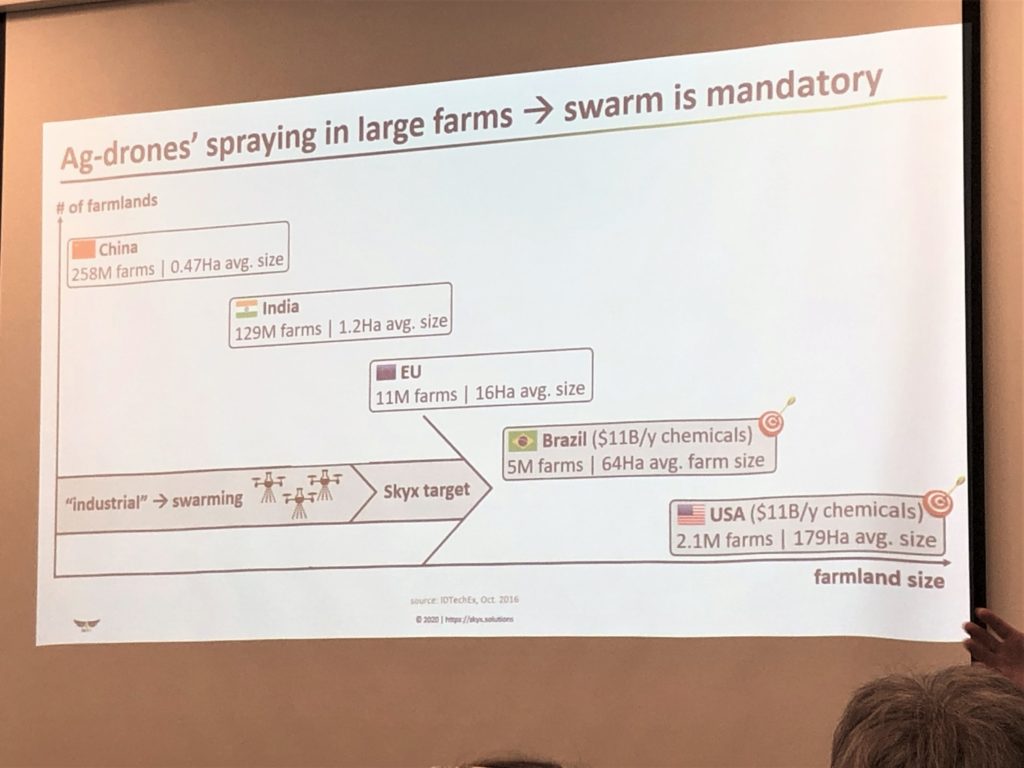
The business model allows Skyx to work with three segments of the market…farmers directly, local FS companies, and large Ag retailers.
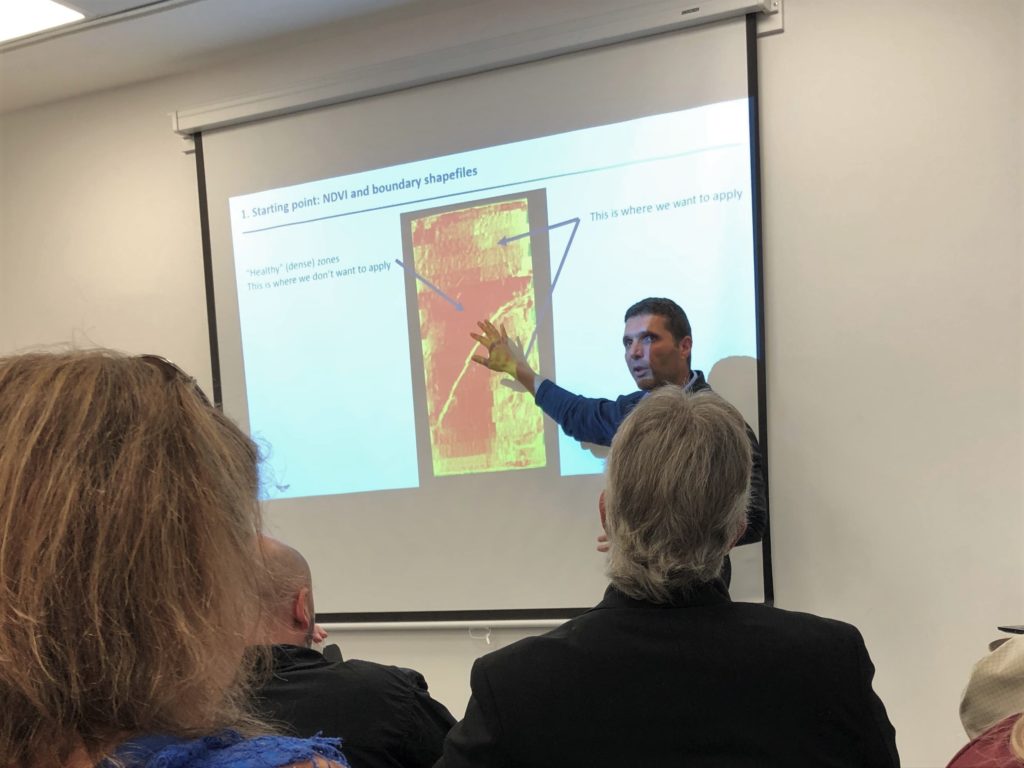
After the meeting with Skyx we head to a new hotel in Israel. As we head to a new city, with new adventures and new opportunities…we will all certainly remember to DREAM BIG!


